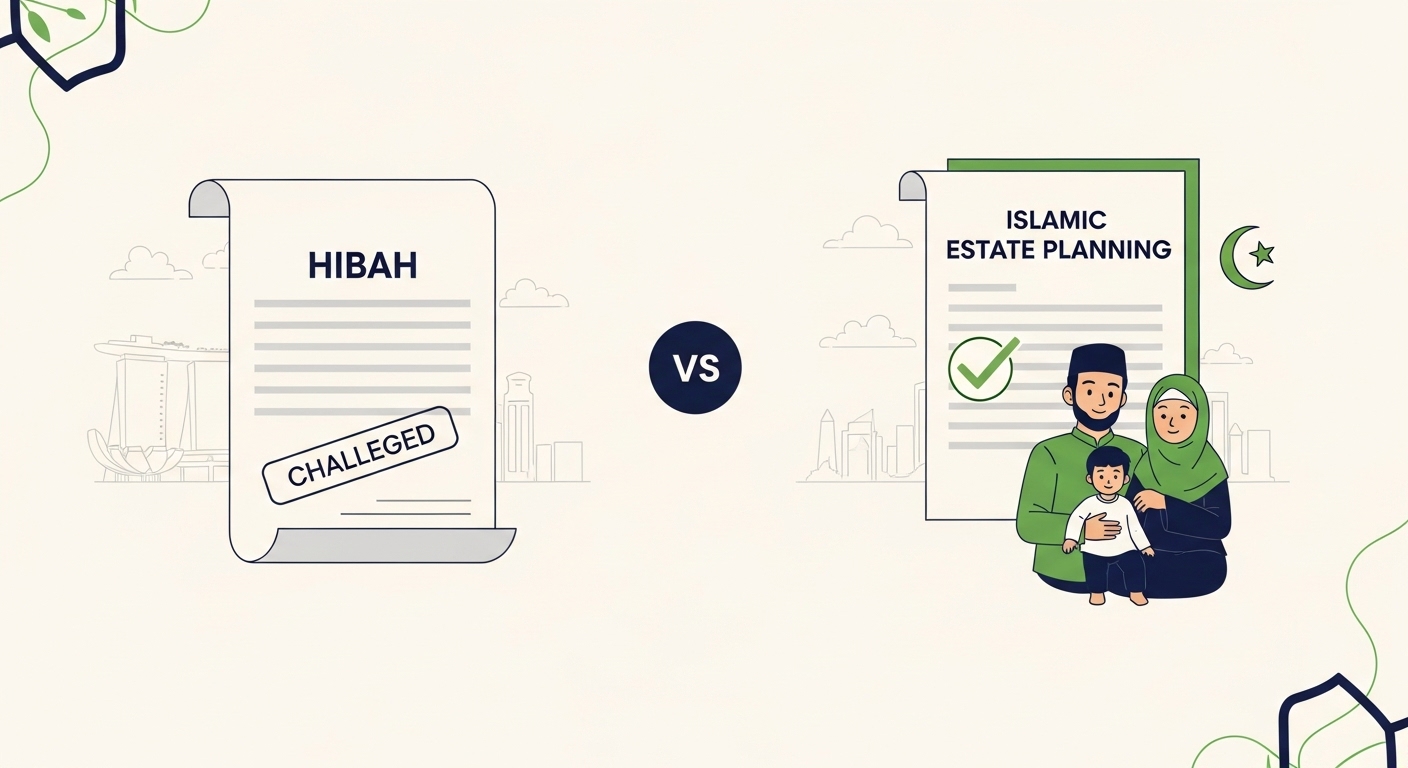Blog

The RM1 Million Hibah Controversy: A Wake-Up Call for Muslim Estate Planning in Singapore
When Good Intentions Go Legally Wrong
Assalamu'alaikum and hello readers,
Recently, a shocking case from Malaysia involving a RM1 million hibah (Islamic gift) made headlines across the region—and it's causing ripples in Singapore's Muslim community too.
This case has sparked serious reflection: Can a hibah be challenged even after it's approved by a Shariah court? And more importantly for us in Singapore, what lessons must we learn to avoid the same pitfalls?
Let’s unpack what happened and see how we can protect our legacy and our loved ones through proper, Shariah-compliant and legally enforceable estate planning.
The Malaysian Hibah RM1 Million Case – What Happened?
A man in Malaysia passed away, leaving behind a RM1 million takaful (Islamic insurance) policy. He had clearly named his wife as the recipient through a “hibah bersyarat” (conditional gift), a common and accepted practice in Islamic estate planning.
The takaful company disbursed the funds to his wife without issue. However, members of the deceased's extended family contested the hibah, bringing the case to the Syariah court, which validated the gift.
But here’s the twist: the case was later brought before the Civil Court, which ruled against the widow. The RM1 million was ordered to be redistributed according to faraid (Islamic inheritance law). To make matters worse, the wife wasn’t even informed or involved in this civil case.
This triggered outrage and confusion. If a hibah can be undone, what protection do Muslim heirs truly have?
Singapore Isn’t Immune: What the Case Means for Us
While this case occurred in Malaysia, the implications extend to Muslims in Singapore who also operate under a dual legal system:
Islamic Law – Governed by the Administration of Muslim Law Act (AMLA), which recognises concepts like hibah, wasiat and faraid.
Civil Law – Governed by national laws covering CPF, HDB, insurance, and trusts.
This means Muslims in Singapore must be doubly cautious. Just like in Malaysia, a hibah that’s valid Islamically could still be challenged civilly if the documentation isn’t solid, or if legal procedures weren’t followed correctly.
How Hibah Works in Singapore – Legally and Islamically
Hibah (gift) is recognised in Singapore under Islamic law. It’s a voluntary, unconditional transfer of assets from one person (the donor) to another (the donee) during the donor’s lifetime. But—and this is a big but—for the hibah to be valid and legally enforceable, it must also comply with Singapore’s civil law requirements.
That means it’s not enough to simply write a document and call it a "hibah." Depending on the asset, civil legal procedures must be followed:
HDB property: You must obtain approval from the Housing and Development Board. Transfers without HDB’s consent are not legally binding.
Insurance policies: Hibah must be supported by formal trust nominations or policy ownership arrangements. A verbal promise or informal declaration isn’t enough.
Bank accounts, investments, and others: Proper ownership transfer documents must be signed and witnessed appropriately.
Even if your hibah is religiously valid, civil law non-compliance can lead to disputes—exactly what we saw in the RM1 million Malaysian case.
The Risk: Why Hibah Alone Isn’t Enough
While hibah is a powerful tool, it is not a replacement for a complete estate plan. Too often, people assume that having a hibah document is “enough.” But here are some critical risks to be aware of:
Civil Law Overrides Poor Documentation
If the asset transfer isn’t recognised under civil law (e.g. unapproved HDB flat transfer), your hibah may be declared invalid.Family Challenges
Even with documentation, family members can dispute the gift, especially if they feel it was unfair, done secretly, or if there are doubts about your mental capacity or consent.No Control After Death
Hibah is meant to be executed during your lifetime. If you become mentally incapacitated, or pass away without executing the transfer, the asset becomes part of your estate and is distributed via faraid, which may not reflect your intended wishes.
Why You Still Need a Wasiat (Islamic Will)
If you think, “I’ve done my hibah, I don’t need a will,” think again. Hibah and wasiat are complementary, not interchangeable.
Here’s why your Wasiat (Islamic Will) is still essential:
Appoint your executor (Wasi) – Someone you trust to manage your estate properly.
Allocate the one-third – Islam allows you to bequeath up to one-third of your estate to non-faraid heirs (e.g. adopted children, charities, non-Muslim relatives).
Appoint guardians – For your minor children, so they are in safe hands.
Clarify your intentions – Prevent misunderstandings and reduce disputes by explicitly stating what you want.
And in Singapore, a properly structured Wasiat, together with hibah, nominations, and possibly trusts, ensures your intentions are clear, legally enforceable, and aligned with Shariah.
Lessons from Malaysia: Don't Leave It to Chance
The RM1 million hibah case in Malaysia is a stark reminder: intentions alone are not enough. Without proper planning, documentation, and legal compliance, your loved ones could end up in court battles, delays, and even financial hardship.
For Singaporean Muslims, this case reinforces three major lessons:
Align your religious and legal obligations – Both matter. Don’t rely only on religious documents. Ensure they’re recognised under Singapore law.
Consult professionals who understand both systems – A general lawyer might not understand Shariah, and a religious advisor might not know HDB or CPF rules. Find someone who knows both.
Estate planning isn’t just for the rich – If you have a flat, CPF, insurance, bank accounts, or investments, you already have an estate.
What You Can Do Next – The Modern Muslim Finance Approach
At Modern Muslim Finance, we specialise in guiding the Muslim community through the complexities of Shariah-compliant estate planning—ensuring your legacy is protected Islamically and legally.
Here’s how you can start:
Explore our Wasiat Writing Service: Whether you’re a parent, homeowner, or just starting to think about your legacy, we’ll help you draft a valid Islamic will that aligns with Syariah and Singapore law.
Visit: https://wasiat.modernmuslim.financeNeed personal advice?
Book a 1-to-1 session with us to discuss hibah, wasiat, faraid, CPF, HDB, and more:
WhatsApp us directly: https://wa.me/6589528511
Secure Your Legacy Before It’s Too Late
The viral RM1 million hibah case has shown us that planning half-way is no longer enough. If you truly want your loved ones to benefit from your wealth—without legal obstacles, delays, or disputes—you need a comprehensive plan.
That means combining:
Hibah for lifetime transfers,
Wasiat for post-death instructions,
Faraid awareness,
Legal documentation that stands in court.
Don’t wait until it’s too late.
Protect your wealth. Protect your family. Protect your akhirah.
Important: The information and opinions in this article are for general information purposes only. They should not be relied on as professional financial advice. Readers should seek independent financial advice customised to their specific financial objectives, situations & needs.
This publication has not been reviewed by the Monetary Authority of Singapore.
Address:
114 Lavender Street, #07-83 CT Hub 2,
Singapore 338729
Email:
[email protected]
WhatsApp:
+65 8952 8511
Website:
modernmuslim.finance








